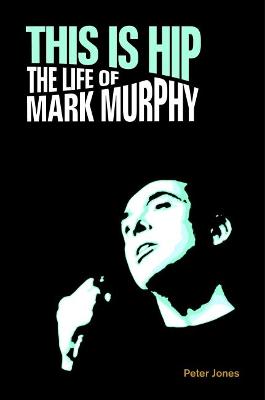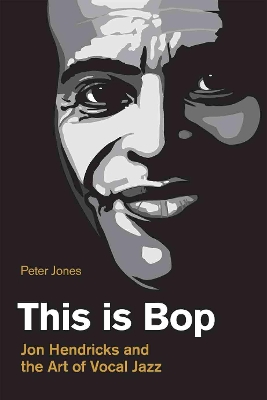Popular Music History
2 total works
When Mark Murphy died in October 2015, the world lost one of the greatest jazz singer in history. Murphy was the last of his kind, a hipster of the Kerouac generation, who rejected the straight life of prosperity and numb consumerism. With a catalogue of more than 40 albums under his own name, Mark Murphy was a consummate improviser, who never sang a song the same way twice. He could have enjoyed a successful mainstream career in the vein of Mel Torme or Jack Jones. But his ambition was greater - to be an artist, to rebel against the commercial music industry and to carry the jazz vocal flame wherever it led him.
Murphy was a master of scat and vocalese, of songwriting and the spoken word. He expanded the jazz singing repertoire, adding his own lyrics to instrumentals like John Coltrane's Naima, Freddie Hubbard's Red Clay, and Oliver Nelson's Stolen Moments. Unrivalled as an interpreter of ballads, he was able to express longing and regret to a degree lacking in any other jazz singer.
For years he roamed the world, playing thousands of gigs. Rediscovered in the Eighties by a new audience of jazz dancers, and again in the 21st century by a digital generation who invited him to guest on their recordings, he remains a crucial though unjustly neglected figure in vocal jazz.
This Is Hip is more than a biography: it also explores Murphy's innovative approaches both to singing and to the teaching of singers. Based on numerous interviews with those who knew him best, the book delves into a performing and recording career that spanned 60 years and earned him five Grammy nominations.
Murphy was a master of scat and vocalese, of songwriting and the spoken word. He expanded the jazz singing repertoire, adding his own lyrics to instrumentals like John Coltrane's Naima, Freddie Hubbard's Red Clay, and Oliver Nelson's Stolen Moments. Unrivalled as an interpreter of ballads, he was able to express longing and regret to a degree lacking in any other jazz singer.
For years he roamed the world, playing thousands of gigs. Rediscovered in the Eighties by a new audience of jazz dancers, and again in the 21st century by a digital generation who invited him to guest on their recordings, he remains a crucial though unjustly neglected figure in vocal jazz.
This Is Hip is more than a biography: it also explores Murphy's innovative approaches both to singing and to the teaching of singers. Based on numerous interviews with those who knew him best, the book delves into a performing and recording career that spanned 60 years and earned him five Grammy nominations.
If any man could be defined as the epitome of the modern jazz singer, it would surely be Jon Hendricks.
His contributions to jazz as a whole were colossal: a hipster, a bopster, a comic and raconteur, a wordsmith par excellence, and a fearless improviser who took the arts of scatting and vocalese to new heights. As a founder member of the groundbreaking vocal trio Lambert, Hendricks and Ross, he changed forever the public perception of what a jazz singer could be.
Jon Hendricks started singing professionally at the age of seven. Within five years he was supporting his entire family - including three sisters, eleven brothers and a niece - with his earnings from radio appearances.
He was active in jazz long before the birth of bebop, and didn't stop until he was in his nineties. Taught by the pioneering bebop pianist Art Tatum, Hendricks performed with everyone of any consequence in jazz, from Louis Armstrong to Charlie Parker. Before Lambert, Hendricks and Ross astonished the world with their album Sing A Song Of Basie, he was writing songs for Louis Jordan. Later he wrote for stage, screen and the press, and influenced and worked with Manhattan Transfer, Bobby McFerrin and Kurt Elling. Not content with writing lyrics for jazz instrumentals, he turned his hand later in life to classical works by Rimsky-Korsakov and Rachmaninoff.
When Jon Hendricks died in 2017, he left behind a final masterwork - his fully-lyricized adaptation of the Miles Davis album Miles Ahead.
His contributions to jazz as a whole were colossal: a hipster, a bopster, a comic and raconteur, a wordsmith par excellence, and a fearless improviser who took the arts of scatting and vocalese to new heights. As a founder member of the groundbreaking vocal trio Lambert, Hendricks and Ross, he changed forever the public perception of what a jazz singer could be.
Jon Hendricks started singing professionally at the age of seven. Within five years he was supporting his entire family - including three sisters, eleven brothers and a niece - with his earnings from radio appearances.
He was active in jazz long before the birth of bebop, and didn't stop until he was in his nineties. Taught by the pioneering bebop pianist Art Tatum, Hendricks performed with everyone of any consequence in jazz, from Louis Armstrong to Charlie Parker. Before Lambert, Hendricks and Ross astonished the world with their album Sing A Song Of Basie, he was writing songs for Louis Jordan. Later he wrote for stage, screen and the press, and influenced and worked with Manhattan Transfer, Bobby McFerrin and Kurt Elling. Not content with writing lyrics for jazz instrumentals, he turned his hand later in life to classical works by Rimsky-Korsakov and Rachmaninoff.
When Jon Hendricks died in 2017, he left behind a final masterwork - his fully-lyricized adaptation of the Miles Davis album Miles Ahead.

